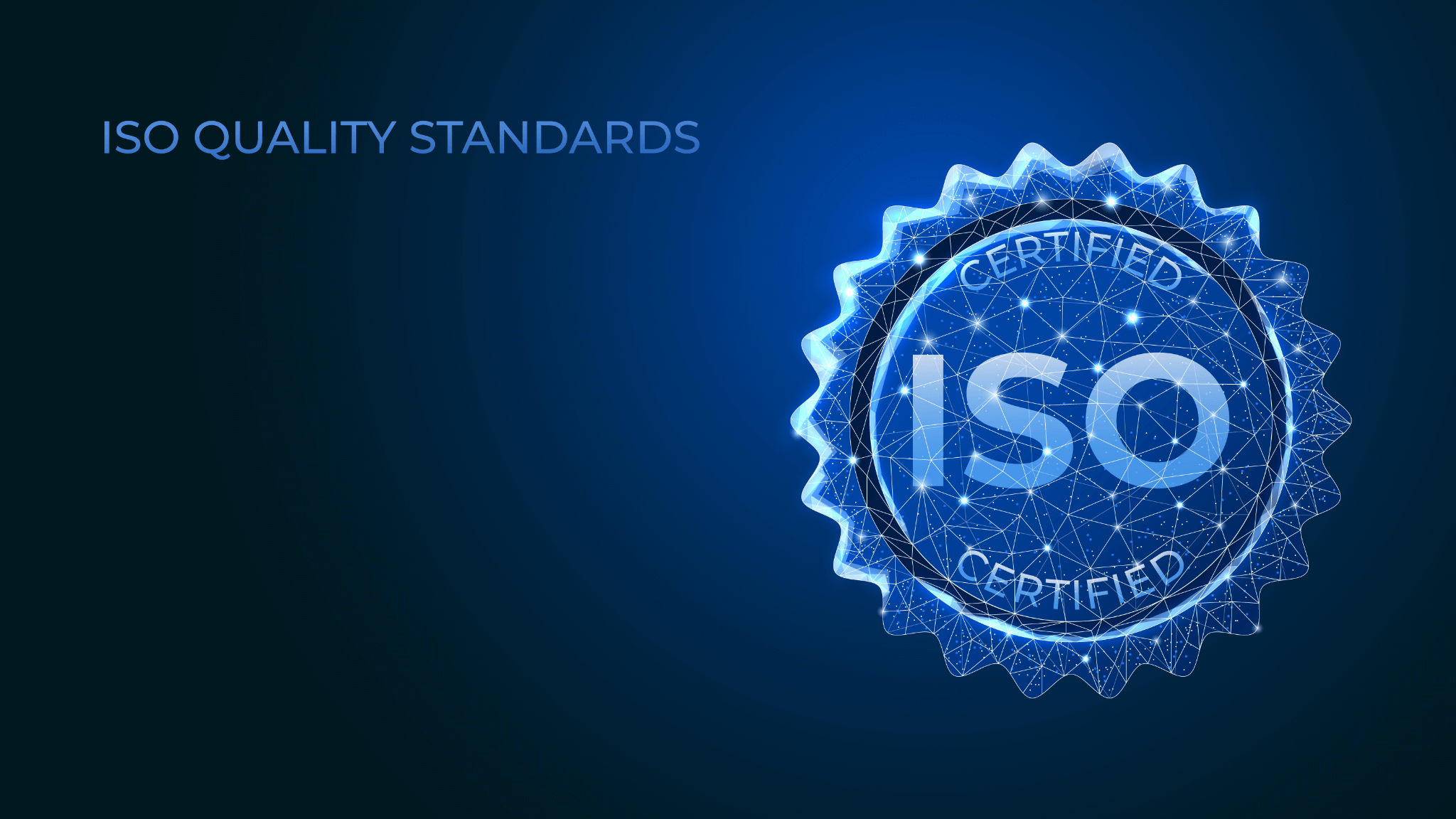The world today is witnessing a radical transformation driven by artificial intelligence (AI) technologies, which have become one of the most important drivers of development and innovation across various sectors. AI is no longer merely a tool for data analysis or performance improvement; it has become an essential element in building growth strategies and forecasting the future. With this rapid expansion, the need has emerged for a framework that ensures the ethical and responsible use of these technologies, maintaining trust and mitigating potential risks.
That’s why the ISO/IEC 42001:2023 Artificial Intelligence Management System came into being. As the first international standard of its kind, it establishes a comprehensive framework for implementing AI governance within organizations. This system aims to enhance trust, ensure transparency, and regulate the development and deployment of AI solutions in a responsible and safe manner.
What is the ISO/IEC 42001:2023 Artificial Intelligence Management System?
This system is defined as an international standard issued by the International Organization for Standardization (ISO). The International Electrotechnical Commission (IEC) specifies requirements for establishing, implementing, maintaining, and improving an Artificial Intelligence Management System (AIMS).
This system applies to organizations that develop or use AI technologies in their products or services, and is designed to ensure that all technical and administrative practices are ethical, transparent, and safe.
Through this framework, organizations can integrate AI into their daily activities while adhering to societal values and responsibilities.
In addition, the standard helps align innovation strategies with international laws and regulations related to data protection, privacy, and accountability.
The importance of implementing ISO/IEC 42001:2023
The significance of this system lies in its being the first global standard to establish clear foundations for managing AI projects. It goes beyond technical aspects to encompass ethical and regulatory dimensions.
For example, its application increases transparency in how intelligent systems make decisions, and reduces the potential for bias or unfair use of algorithms.
On the other hand, The system helps organizations build a sustainable governance culture that makes AI a tool for development rather than a source of risk.
Therefore, its implementation represents a long-term strategic investment in business sustainability, while at the same time a means of enhancing competitiveness in a rapidly changing digital market.
Key benefits of adopting the system
1. Enhancing trust and credibility
Adopting this standard gives customers, investors, and regulators greater confidence in an organization’s products and services. When a company demonstrates its commitment to a globally recognized framework, it sends a clear message that it is implementing AI responsibly.
2. Effective risk management
The system helps organizations identify and analyze risks associated with the use of artificial intelligence, whether technical, legal, or ethical. Through continuous monitoring and improvement procedures, the likelihood of errors or deviations can be reduced.
3. Compliance with regulatory requirements
With data protection and privacy legislation escalating, this standard helps organizations comply with these laws through clear governance and accountability mechanisms.
4. Continuous improvement and responsible innovation
The system encourages periodic review of all AI-related processes, with the goal of achieving continuous development and sustainable innovation, without compromising ethical or regulatory controls.
Scope of application of the system
ISO/IEC 42001:2023 applies to all types of organizations, whether small or large, public or private.
It can also be applied in various sectors such as:
- health care
- education
- Financial services
- Industry
- Cybersecurity
- Transportation and Logistics
In addition, the system can be easily adapted to suit the nature of each organization, as its mechanisms and procedures are designed to suit the size of the business and the level of complexity of the AI systems used.

The basic components of an AI management system
1. Leadership and commitment
The success of any management system begins with senior management, so the standard emphasizes the importance of leadership commitment to allocating resources, defining roles and responsibilities, and ensuring effective communication about the importance of safe and responsible AI.
2. Strategic planning
The system requires assessing risks and opportunities, and setting clear goals that align with the organization’s vision for digital innovation.
Moreover, This planning ensures that all AI-based initiatives are consistent with the organization’s overall ethical and governance policies.
3. Support and resources
This includes providing qualified human resources, continuous training, and the necessary technical infrastructure.
The system also includes precise requirements for documentation and internal and external communication to ensure transparency.
4. Operation and implementation
At this stage, processes for developing and using AI solutions are designed and implemented.
The system ensures that every stage, from data collection to model development and deployment, is conducted according to ethical and safe standards.
5. Performance evaluation and improvement
The standard stipulates the need for regular review of the system’s effectiveness, using clear performance indicators.
Therefore, corrective and preventive actions are taken to improve performance and ensure continued compliance with international standards.
The relationship between ISO/IEC 42001 and other standards
An important advantage of this system is that it can be easily integrated with other management systems such as:
- ISO 9001 (Quality Management)
- ISO/IEC 27001 (Information Security)
- ISO 31000 (Risk Management)
This integration allows organizations to create an integrated environment that ensures quality, security, and sustainability across all their digital operations.

Implementing an artificial intelligence management system in organizations
When implementing an ISO/IEC 42001:2023 AI management system, organizations need to take an integrated approach that starts with a deep understanding of the standard’s requirements and ends with measuring implementation results.
For the implementation process to be successful, several key interconnected stages must be adhered to, including:
1. Analysis of the current situation
The organization begins by assessing its current position regarding the use of AI technologies.
This analysis helps identify potential gaps and risks, as well as identify strengths that can be built upon.
2. Establishing a governance framework
It is essential to establish a clear AI governance framework that defines responsibilities and ensures transparency in the decision-making process.
For example, Policies related to data collection, model training, and monitoring of model performance should be documented.
3. Building a culture of responsibility
No system can succeed without employee support and awareness.
Therefore, it is important to foster a culture of ethical and responsible work within the organization, while providing the necessary training to understand the principles of safe and sustainable AI.
4. Continuous review and improvement
After implementation, the system performance must be continuously monitored and its results analyzed.
Therefore, the organization can detect errors early and implement immediate corrective actions to ensure continuous improvement.
Potential challenges and how to overcome them
Despite the significant benefits this system offers, there are challenges facing organizations during implementation, such as:
- Lack of specialized expertise in managing AI systems.
- Difficulty aligning ethical frameworks with business requirements.
- Technical limitations in some legacy operating environments.
However, these challenges can be overcome through cooperation with Specialized consulting firms We have experience in implementing quality management and technical systems, saving time and effort and ensuring full compliance with standard requirements.
The Future of Artificial Intelligence Management
The coming years will certainly witness a massive expansion in the use of artificial intelligence technologies, whether in data analysis, decision-making support, or even in running complex operational processes.
Therefore, institutions that rely on With an ISO/IEC 42001:2023 AI Management System, you will be better positioned for sustainable growth.
In addition, this system will become an essential part of the digital transformation strategy of governments and major companies, as it ensures a balance between innovation and responsibility, and between technological progress and the protection of people and society.
Why is ISO/IEC 42001 a strategic step?
Because this system is not only limited to regulatory compliance, but also gives institutions Clear competitive advantage in the market.
When a company demonstrates that it applies governance and security principles to its smart systems, it gains the trust of customers and partners and opens up new collaboration opportunities.
In addition, this system enhances the organization’s reputation as a responsible entity that seeks to use technology to serve humanity and respect societal values.
Tips for getting the most out of the system
- Start with a clear plan: Set specific goals for integrating AI into your business.
- Invest in training: Ensure internal teams are qualified to understand the standard and its requirements.
- Embrace continuous improvement: Monitor system performance and adjust procedures regularly.
- Collaborate with certified experts: Working with a consulting firm like Reins provides you with comprehensive professional support during all stages of implementation.
In light of the rapid digital transformation, implementing artificial intelligence is no longer a luxury, but a strategic necessity for every organization aspiring to grow and develop.
As ethical and regulatory challenges increase, The ISO/IEC 42001:2023 Artificial Intelligence Management System is a key tool for ensuring the responsible and safe use of intelligent technologies.
This system not only protects the organization from risks, but also enhances confidence in its products and services and supports its ability to sustainably innovate in a constantly changing digital market.
By adopting it, organizations can achieve a true balance between technological development and social responsibility.
An invitation to take a step into the future with Reins 🌐
If you are seeking to implement
the ISO/IEC 42001:2023 Artificial Intelligence Management System
With professionalism and full compliance, the company Reins offers you the perfect solution.
We help organizations build effective frameworks for AI governance, risk management, and compliance with international standards.
🔹 Our services include:
- Specialized consultations for implementing ISO/IEC 42001:2023
- Qualifying internal teams to manage artificial intelligence
- Audit and evaluate the readiness of existing systems
- Preparing the required documents and policies for compliance
Contact Reins today to begin your journey towards a safer and more responsible digital future.
Because true intelligence lies not in technology alone, but in how we manage it.











